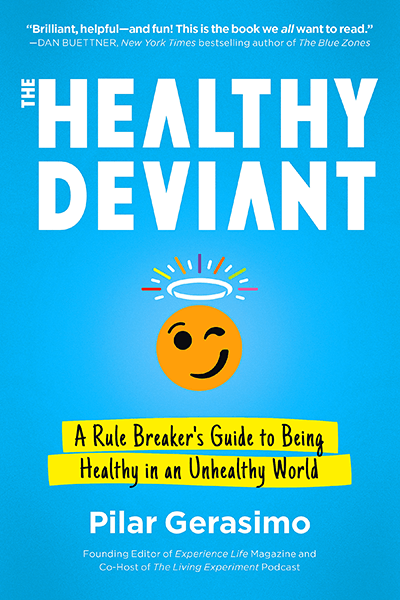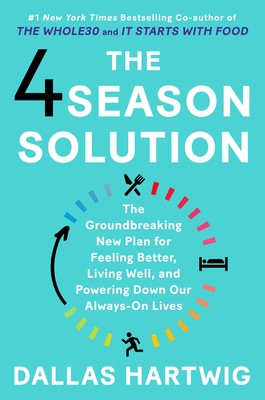This week we bring you an episode that has been a VERY long time coming — a special guest episode with New York Times best-selling author John Zeratsky.
John is the co-author — with Jake Knapp — of two terrific books, Sprint (a popular business title from 2016) and Make Time: How to Focus On What Matters Every Day, which came out in the fall of 2018.
In this episode, recorded in the fall of 2019, John and Pilar talk about both titles, and about the themes connecting them. From the value of creating clear mental space for our most pressing priorities to the importance of respecting the limits of our time and attention, John makes a case for doing our lives differently than we’re doing them now — so we don’t get overwhelmed and start feeling like our lives are passing us by.
John shares some of the brilliant ideas from Make Time, including a strategy that helps you carve out 60 to 90 minutes for a single “highlight” priority each day, and then get better and better at making that priority happen.
We also talk about the value minimizing digital distractions, the pleasure of doing one thing at a time, the importance of taking breaks, and our shared passion for ultradian rhythms. We even veer into the territory of ancestral health and learning how to take better care of our bodies and minds by taking cues from the ways our ancient ancestors lived.
Whether you are looking to create more clarity and momentum in your life, or striving to keep anxiety and burnout at bay, the Make Time approach offers a lot of promise. John’s wisdom in leveraging small changes to create big impacts also holds a lot of hope — especially for those of us who feel like we are endlessly juggling more balls than we can handle.
Finally, we leave you with some fun experiments to help you make more time for whatever matters most to you.
“Make Time with John Zeratsky” Episode Highlights
- The Google Ventures design sprint process behind Sprint: A unique and flexible 5-day process for solving tough problems and launching new products
- Applying the design sprint ideas to everyday life in Make Time
- John’s personal history with trying to become more productive and manage his time wisely
- The Make Time strategy of choosing one daily highlight to focus on for 60 to 90 minutes, and how it results in easier decisions and interactions throughout the day
- The pleasure of doing even one small thing well and to completion and the motivation that naturally follows
- Why the human body is not capable of staying in a high productivity state all day long, and the energy-creating benefits of frequent breaks
- The sick society we’ve created with the norms we’ve chosen to adhere to, and why the problem isn’t lack of willpower
- The evolutionary benefits of distractability
- John’s transition from the high-paced corporate world in San Francisco to a more deliberate life based in Milwaukee
John’s Experiment of the Week
Tomorrow morning, think about one thing that you want to accomplish. The one thing you most want to make time for and bring your greatest energy and attention to. It should be something you can do in 60 to 90 minutes, so it won’t be the only thing you will do all day. It might be something that needs to happen soon, or something you’ve been putting off doing, or just a fun thing. Block off the time in your calendar — it’s the best way to make sure the thing happens, but it also forces you to confront the tradeoffs in how you spend your time. Is your calendar too full to fit in the thing? What do you have to move around or re-prioritize to make it happen?
Pilar’s Experiment of the Week
Choose one day this week to track your Trouble Clock. On a piece of paper or in your calendar, make a note of every time you experience lower “willpower” — eating something you don’t want to eat, getting distracted on social media, skipping gym time, falling into a bad mood — and notice what you were doing two hours before the trouble started. What are the patterns and experiences that tend to precede the trouble? You might notice that trouble often strikes when you have gone too long without a break, and become depleted, overwhelmed, stressed, and overly hungry as a result. Can you see how and when over-running your energy stores sets you up for “lower willpower” and unhealthy choices? Experiment with preemptively taking a break to rest and refuel before your situation becomes critical. Notice how predicting and getting ahead of your depleted states can help you avoid trouble.
Resources
- John Zeratsky’s website and the Make Time website
- Connect with John on Twitter
- John’s books with Jake Knapp: Sprint and Make Time: How to Focus on What Matters Every Day
- Pilar’s book, The Healthy Deviant: A Rule Breaker’s Guide to Being Healthy in an Unhealthy World
- The Time Timer: Simple visual timer for stress-free time management (available as an analog tool, and also as an app)
- Tanja Hester’s website and The Fairer Cents podcast
If you like this podcast, you’ll love our books!

Pilar Gerasimo
ORDER FROM AN INDEPENDENT BOOKSELLER
ORDER FROM AMAZON

Dallas Hartwig
ORDER FROM AN INDEPENDENT BOOKSELLER
ORDER FROM AMAZON
Plus …
Sign up for The Living Experiment newsletter so you can stay up to date with us, and receive notifications when new episodes are released.
Subscribe to The Living Experiment on Apple Podcasts to have fresh episodes delivered to your podcast feed as soon as they’re released.
Sponsor Love and FREEBIES
Thanks to our sponsor, Optimize by Heroic, for supporting this season of The Living Experiment. Now you can get Optimize membership (formerly $250) for FREE just by signing up here. And check out the Heroic social training platform, with a goal of creating a world in which 51% of the world’s population is flourishing by 2051 — starting with YOU!
Share the Love!
Have you told your friends and family about The Living Experiment? If you dig the podcast, please share it! And leave a review at Apple Podcasts or wherever you subscribe. Every recommendation from you means a lot!
We’d also love to have you connect with us on Facebook. Tell us about your experiments, and share your thoughts, stories and reflections there.
